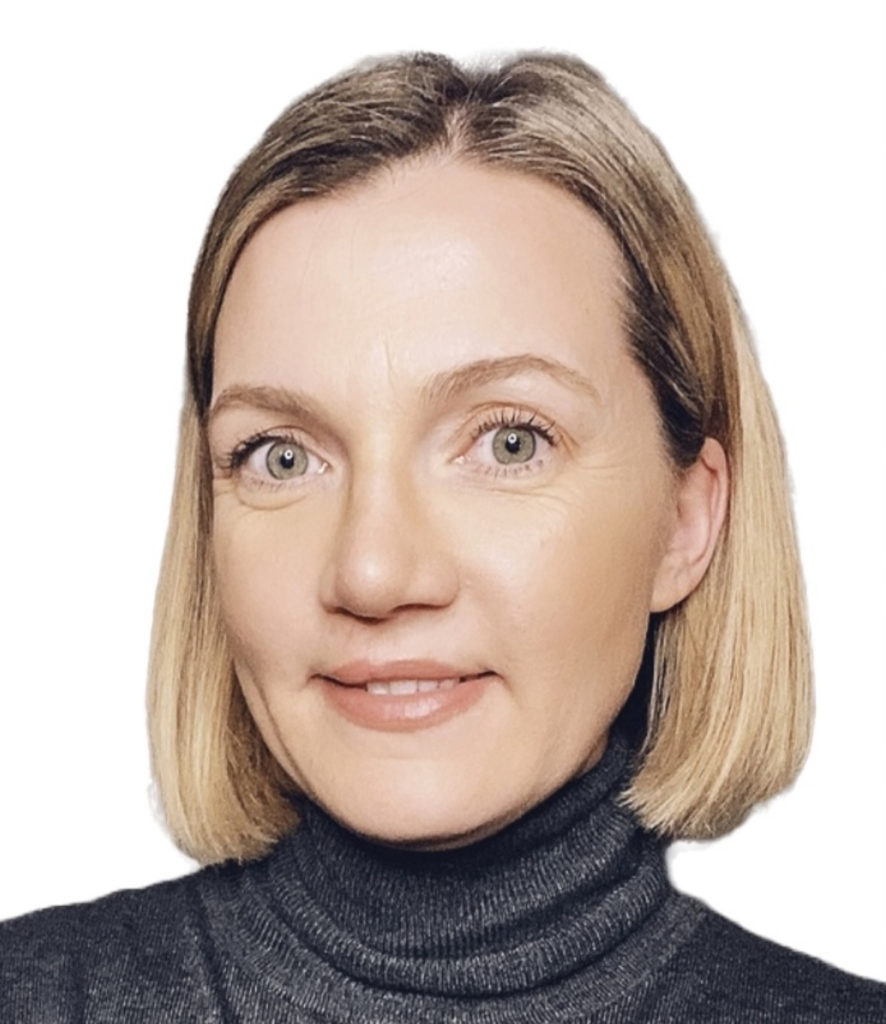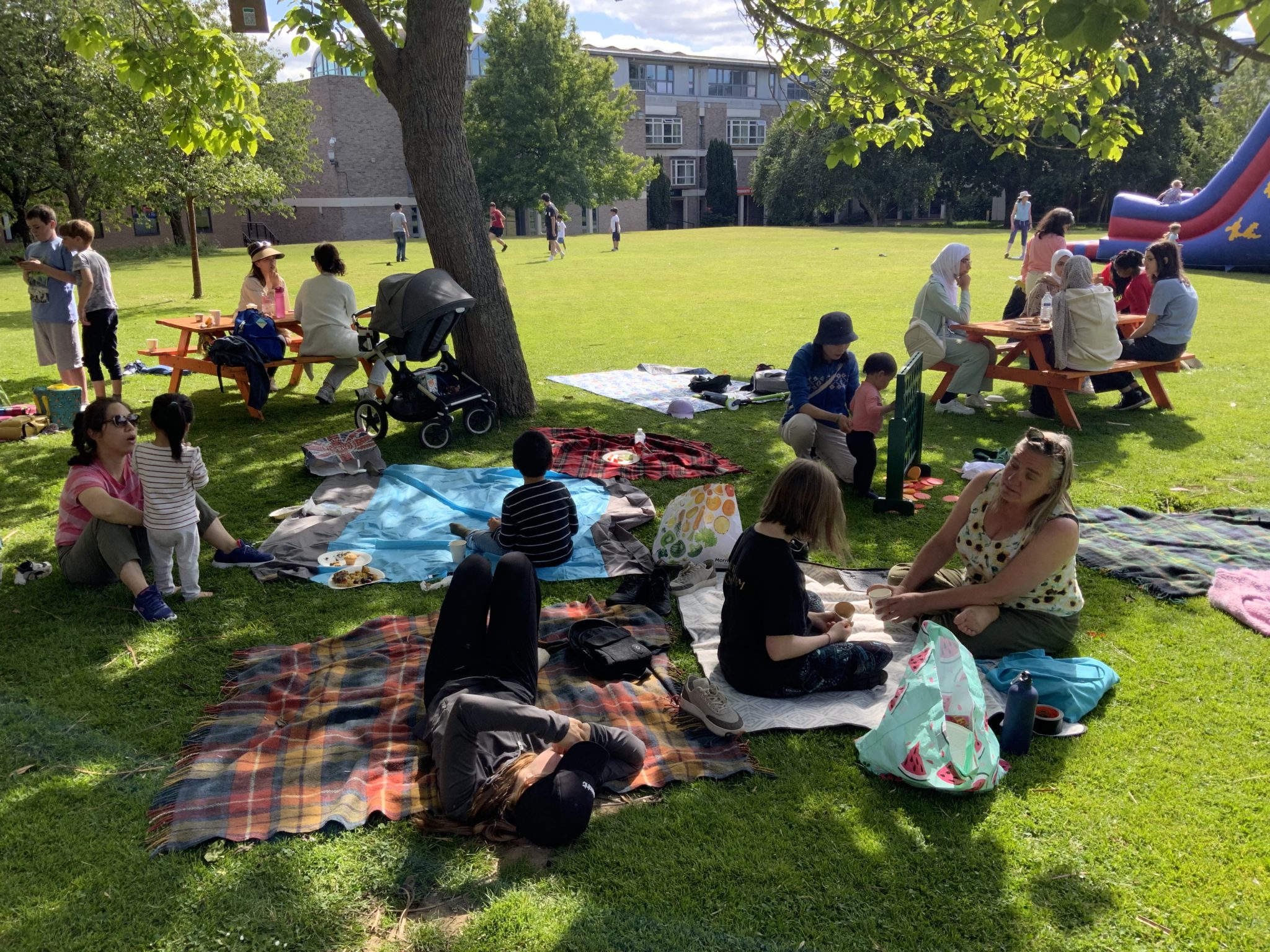Lyndsey Carmichael – a recipient of last year’s Dean’s Commendation for Academic Citizenship – tells us about her involvement in mentoring and student parent support.
Tell us about yourself and your PhD research
I’m in my 4th year of a part-time PhD in the School of Education. My PhD is on the international experience of postgraduate students in distance education. I’ve got a teaching background in English as a foreign language, but I wanted to move into academic English. Originally my research was still within distance education but specifically looking at feedback. But I’ve pivoted, as many PhD students do as they find what they love.
There are many wider research culture activities we can get involved in as PGRS over the course of our studies. Finding balance is hard. How have you judged what is a good use of your time?
I think that anybody doing a PhD should think about other experience in addition to teaching and research because of the state of academia right now. I’ve chosen things purposefully, to increase my knowledge and understanding of higher education. I’ve found things I feel quite passionate about, especially around student experience.
Can you explain how peer mentoring works and what your involvement has been?
There’s a huge peer mentoring scheme at the University but I specifically got involved in the School of Education ‘buddy up’ scheme under the direction of Dr George Tarling and Emma Norman. I had 10 Mentees over the 2023-2024 academic year, some of whom I knew from being a PTA. We started off with a very structured, pastoral approach to peer mentoring, but it’s hard to separate academic support from pastoral support when you’re doing mentoring in higher education. It goes hand in hand. I had a great cohort of co-peer mentors. We all had different skills and different backgrounds, so between us all we were able to deliver a very successful programme.
As the year went on, I created my own small programme for my mentees who were showing interest in applying for a PhD and I also encouraged them to do the School of Education Conference. I showed them how to design a poster and do an abstract and get comfortable with doing a level of activity that you would normally do as a doctoral student. I really loved it. I even went to their graduations, and gave advice with references, applications etc. It was a really good experience for me because it helped me come out of my office and my PhD bubble, which can be lonely. It’s benefited me as much as them.
It sounds brilliant! Would you advocate for this to be established in other departments?
Well, the ‘buddy up’ scheme won awards from the Guild and the University last year! That does suggest that this bespoke, department-level support is needed as well as the academic mentors the University are hiring across the board. Of course, PGR students’ capacity to support these kinds of initiatives varies. I’m really light touch this year because I’m in a crucial stage of my PhD. You have to sometimes draw yourself back.
You also pioneered the ‘PAFS’ programme – tell us about that
PAFS (Parents and Family Support) is a grassroots support community for student-parents at the University. It started out as one of the HASS Research Culture funded projects in 2023. Being a student parent myself (I’ve got four children), I felt this is needed, and Professor Stacey Hynd was encouraging of the scheme when I applied for the fund. We explored what the group would look like with HASS and it became community events at family-friendly times, welcoming to partners and children.
Our first ever event was a winter party, about 30 people came and they brought their kids and their husbands and their partners. One even brought their mother who was visiting from the Middle East! We made friends and connections; it was food for the soul. Then we did a series of talks e.g. for international students to understand how the UK school system works. We did a community iftar, a series of yoga events for postgraduate parents and the Guild funded us to have an end of year family picnic at St Luke’s and various small lectures aimed at informing and advocating for student-parents.
It sounds like PAFS allows peoples’ lives to join up: they are fully caring for their children; they are fully researchers; these don’t have to be alien worlds to each other.
Exactly. But it’s so hard to sustain these things. I had to put a lot of time and effort into building the initial connections, getting the information out, encouraging people to come. Despite the need, people can get caught up in their research and their life in the world. Then this year, I put in two application funding applications in which were not successful, and I almost gave up.
But I found some amazing PGRS who now help, and we are finding either small pockets of generosity from the University or people that are offering to do things for us for free. So, I haven’t given up. I’m still fighting for PAFS and now looking for PGRs who want to lead and keep this group going beyond my time at Exeter.
How we can make a case for sustained funding for all these things which support the wider lives of PGRs and enable them to hand their theses in on time? Or is it that the national picture is so difficult that universities are in an impossible situation?
I’ve had an amazing experience with the School of Education. And I don’t think universities at the moment have the capacity to think about these small pockets of students when they’re trying to keep their heads above water financially. But we need to find ways of supporting these groups. I’ve currently got funding from the Centre for Social Mobility to look at student parent barriers to progression across all disciplines in the university. I want to encourage others to research and share best practices to help student-parents and other vulnerable groups within the university.
All this wonderful work you’ve been you’ve been involved in was recognised through the Dean’s Commendation. Did that matter?
Yes! Some PGRs give up an awful lot of time into these things, more than people realise. However, as a teacher, this is natural for me to help others. But of course, just being recognised was unexpected but very nice. It’s validation that you’re doing all the right things, and it keeps you going. It’s a bit of fuel.
Get involved
- Do you know someone whose passion for supporting PGRs and building research culture deserves recognition? Submit your nomination for this year’s Excellence in PGR Academic Citizenship by 12 midday on 19 May 2025.
- Help PAFS continue by contacting the team via their website

Lyndsey Carmichael is an Early Career Researcher (ECR) and PhD candidate in Education, focusing on the experiences of international students in distance learning. As an Associate Fellow of the Higher Education Academy (AFHEA), her work spans teaching, mentoring, and research activities. Her contributions have been recognised through awards, including the Postgraduate Experience Award for Peer Mentoring and recognition as a Postgraduate Teaching Associate within the School of Education.
Lyndsey was interviewed by Ruth Moore, HASS PGR Blog editor. The interview has been co-edited for length and clarity.

